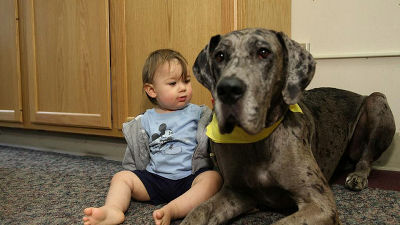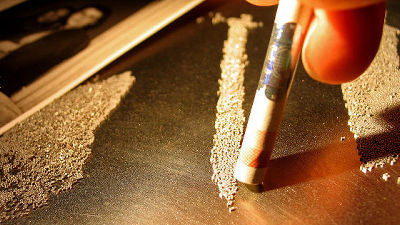Behavioral genetics aiming to alleviate crime as "not letting criminals themselves" cause the brain to commit a crime "

ByHoustondwiPhotos mp
About the role of neuroscience in crimeDiscussionHas become active around the year 2011, "How brain abnormality and malfunction affect the motivation and behavioral characteristics of crime" and "Monoamine oxidaseRelationships between genetic variants such as violent behavior and the like ", scientists have been conducting research. Professor Nita Farahany, teaching law and philosophy at Duke University, gradually became involved in the criminal justice system, such as neuroscientic evidence used in trials,Behavioral geneticsI am conducting research as to whether he can alleviate the punishment of the accused such as a murder case by making use of it.
Neuroscience and behavioral genetics in US criminal law: an empirical analysis
http://jlb.oxfordjournals.org/content/2/3/485.full
My brain made me do it: Neuroscience and behavioral genetics in court | Ars Technica
http://arstechnica.com/science/2016/03/my-brain-made-me-do-it-neuroscience-and-behavioral-genetics-in-court/
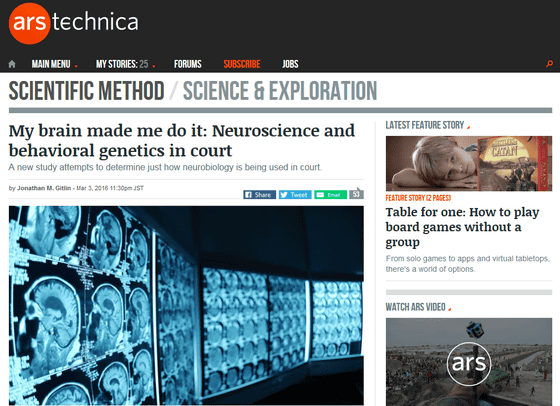
Professor Nita Farahany conducts phylogenetic research on what happens as a result of neuroscience being used as a trial. Professor Farahany who analyzed more than 10,000 criminal incidents in the United States between 2005 and 2012 found that there were 1585 incidents involving neurobiological evidence. About 100 cases in 2005 have increased to 250 cases in 2012, and the tendency to conduct neuroscience / behavioral genetics judgment for criminal trial defendants is strengthening It shows.
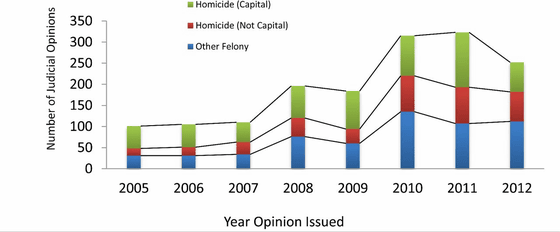
The contents of the criminal case where neuroscientific evidence was used are various kinds of crime such as serious murder case, drug crime, sexual assault, robbery, fraud and so on.
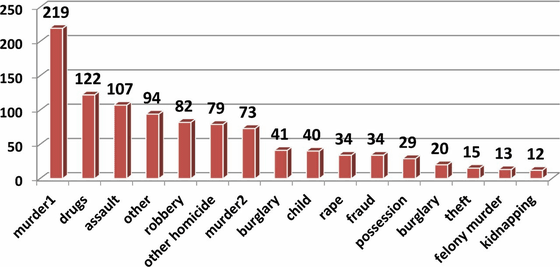
Professor Farahany has also found that evidence that is not academically or scientifically accepted is used. In addition, only 15% of cases in the brain scanned pictures taken with MRI, CT, etc. are used for trials, and when viewed in criminal cases there are over 40% of trials where neurological evidence is not used And that. Professor Farahany found that about 44% of the 1585 cases used neurobiological evidence to reduce sentencing. Of these, it was also found that about half of cases the accused claims to have claimed that "lawyers did not use neuroscientific evidence before."
20 to 30% of the defendants succeeded in lightening sins using neuroscientific evidence, but conversely saying that 70% or more failed to exploit the neuroscientific evidence I mean it. Professor Farahany says, "Neuroscience and behavioral genetics can analyze the average behavior of humans, but it turns out that it is difficult to analyze why individuals took action." I will.
In addition, Professor Farahany told the Neuroscience Society, "Because there is a tendency for neuroscience to be used as evidence of criminal cases, scientists cooperate with the criminal justice system with responsibility, so that superior judges, lawyers, We should call up the jury. "

ByLevi
Related Posts:
in Science, Posted by darkhorse_log
